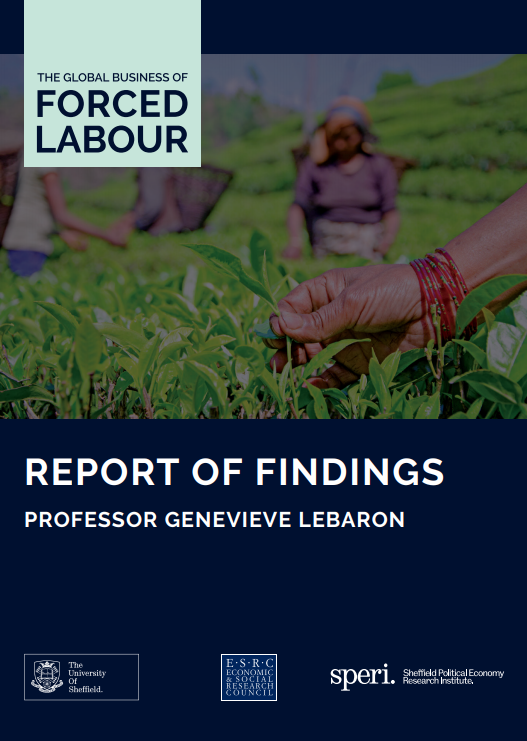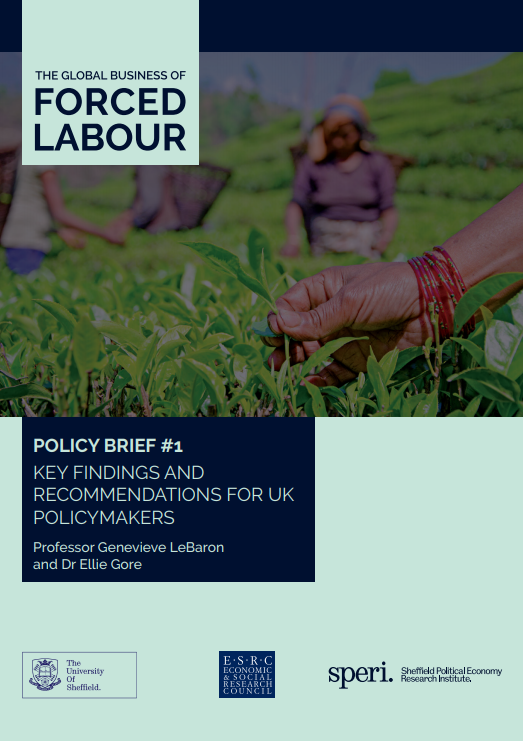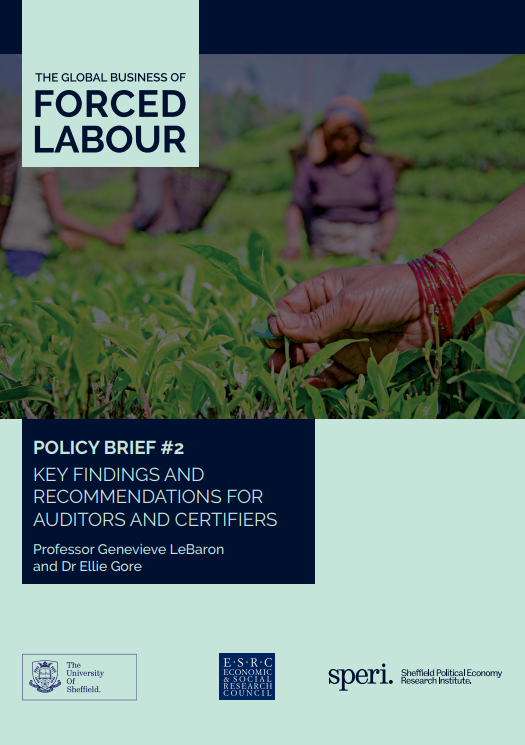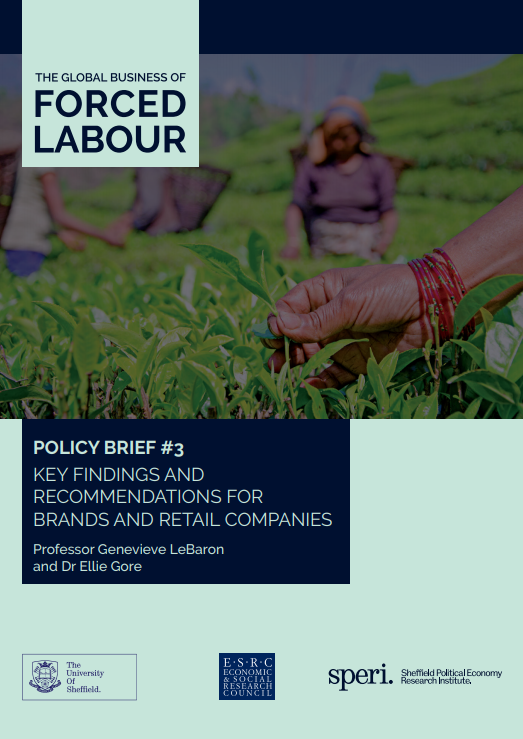This report presents the findings from the Global Business of Forced Labour project.
The project investigates the business models of forced labour in global agricultural supply chains. Over two years the project systematically mapped the business of forced labour, focusing on case studies of cocoa and tea supply chains.
Through extensive primary research in the cocoa industry in Ghana and the tea industry in India and with domestic and international business actors, the project generated an original dataset that sheds light on the drivers and patterns of forced labour in agricultural supply chains feeding UK markets. This dataset includes in-depth interviews with over 120 tea and cocoa workers, a survey of over 1000 tea and cocoa workers, and over 100 interviews with business and government actors including: tea and cocoa plantation managers, buyers, large multinational beverage and confectionery companies, corporate social responsibility experts.
The report analyses the patterns of forced labour in cocoa and tea supply chains and the effectiveness of key business and government initiatives in combating it. By way of conclusion, it offers recommendations to strengthen approaches to address and prevent forced labour in supply chains.
Key findings and statistics from the project include:
- There are widespread patterns of labour abuse in tea and cocoa supply chains feeding UK markets. Low prices and irresponsible sourcing practices create high profits for retail and brand firms but this creates a strong and systemic business ‘demand’ for cheap and forced labour.
- The project found evidence of abuse including: sexual violence; verbal abuse; threats of violence; threats of dismissal; debt bondage; the under-provision of legally mandated goods and services including housing, sanitation, water, food and medical care; non and under-payment of wages; and requirements to complete unpaid labour as a condition of employment.
- Employers profit from forced labour by using it to reduce the cost of business. The study finds evidence that employers in the tea industry systematically under-pay wages and under-provide legally-mandated essential services such as drinking water and toilets. In the cocoa industry employers cut costs by under-paying wages and creating situations of debt bondage.
- Although chocolate and tea companies are highly profitable, workers at the base of their supply chains live far below the poverty line. Tea workers’ wages in India are as low as 25 per cent of the poverty line amount and cocoa workers’ wages in Ghana are around 30 per cent of the poverty line amount.
- 40 per cent of tea workers within the study have had unfair deductions made from their wages.
- 47 per cent of tea workers within the study do not have access to water that is safe to drink.
- 23 per cent of cocoa workers within the study have performed work they were not paid for.
- 95 per cent of cocoa workers within the study did not know whether the farm they were working on was certified or not.
Targeted recommendations for policymakers, business, and certification organisations are laid out in a series of policy briefs that accompanies this report.




